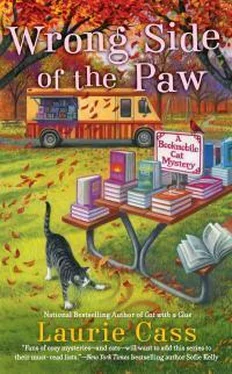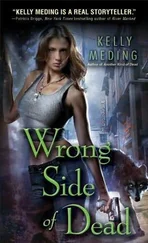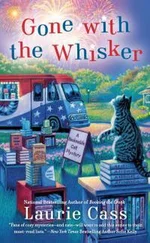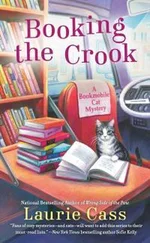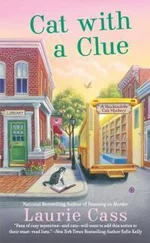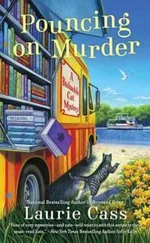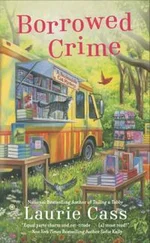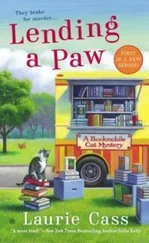“You’re closed in the winter?”
“Hate snow,” Kristen said. “Always have. In a few weeks, maybe less, I’ll skedaddle down to Key West. During the week I spend a lot of time in a hammock inspecting the insides of my eyelids, and on the weekends I tend bar for a friend.”
“Sounds like a good plan.” Leese smiled. “How long have you had this place?”
“Going on four years.”
“Have you been in the restaurant business since high school?”
I kept my gaze firmly on the shiny countertop, wondering what version of the story Kristen would tell this time.
“Nope.” My best friend hesitated, then said, “After I got a bachelor’s degree in biochemistry, I got my doctorate. Then I spent a miserable couple of years working for a big pharmaceutical company. I came home one Christmas and spent the whole time whining about my job. Someone got tired of hearing me complain and said if I didn’t want to be unhappy the rest of my life I should think about doing something else.”
At the end of the sentence, Kristen kicked me.
I kicked right back. My recollection of that conversation wasn’t the same as hers, but whatever.
“Less than a year later, I’d opened this place,” she said, spreading her arms wide. “I work my tail off spring through fall, then bask in the sun most of the winter.”
For once, she’d mostly told the truth. The only thing she’d left out was the intensive and exhaustive training she’d embarked on before opening her own place and the brilliant way she’d convinced the bank’s loan manager to sign off on the commercial loan—by bringing him lunch.
The two chatted for a few minutes about former softball teammates: about who moved away, who was still around, who had kids, and who didn’t. Then Kristen asked, “What about your family? Is your dad still—”
This time I kicked her a lot harder.
She slapped a hand over her mouth. “I am so sorry,” she said through her fingers, her blue eyes wide with regret. “I forgot, I just totally forgot.”
Leese half smiled. “I’d forgotten, too, for a few minutes, so don’t feel guilty, Kristen. It’s not a good look on you.”
“But I am sorry for being so stupid.”
“This wasn’t nearly as stupid as you were in that tournament when your team played Traverse City St. Francis.”
Kristen sighed. “I still dream about that game. How could I have been that dumb?”
“Don’t worry,” I said. “I’m sure there will come a time when you’re even more stupid. Just have patience.”
“What would I do without you to prop me up?” She shook her head in fake wonderment.
Leese smiled, looking at us. “You two act more like sisters than just friends. It reminds me of my . . .” Her words trailed off.
“Of your stepsister?” I asked gently. “Your stepbrother?”
“The police are questioning Brad and Mia.” Leese pushed her empty wineglass away and shook her head at Kristen’s gesture toward the bottle. “They’re talking to my stepmother, Carmen.”
“But they must know you didn’t have anything to do with your father’s death,” I said.
Leese’s sturdy shoulders had slumped. “It’s not their answers so much as the questions.”
“What do you mean?” Kristen asked.
“It’s not Brad or Carmen I’m worried about,” Leese said. “It’s Mia. She’s been doing fine for years, but something like this . . .” She shook her head. “Bad enough that our father is dead, that would be hard enough for her to deal with. But having him dead like this? And for the police to put me in jail for a day, and then to grill her as if she had something to do with his death?”
I exchanged a questioning glance with Kristen, then phrased my next question as tactfully as I could. “Mia has had issues?”
“It was when she was in high school,” Leese said. “My baby sister was diagnosed with anorexia.” She looked at us, tears glistening in her eyes. “She was hospitalized and she . . . almost died.”
Not knowing what to say, I reached out and took her hand between mine.
“Something like this,” Leese whispered. “It could send her backward. It could kill her.”
Kristen stood, came around the back of Leese’s stool, and hugged her from behind. And we stayed like that, saying volumes without saying a word, for a long time.
Finally, I broke the silence. “We’ll figure this out,” I whispered to Leese. “I promise.”
Chapter 5
I sat at my computer the next morning, determinedly searching for ways to cut the bookmobile’s budget in a way that didn’t sacrifice services. Halfway through the morning I came to the conclusion that my self-appointed task was impossible unless fuel prices dropped to twenty-five cents per gallon or unless I cut my own salary by a significant amount.
Stephen, my old boss, hadn’t been big on pay increases, and inflation was far outpacing the raises we’d reluctantly been given over the last few years, so I wasn’t keen on a wage cut. I was on pace to pay off my last student loan within a year and I wanted to bulk up my savings before I even considered buying a house.
When noontime rolled around, I’d found a way to revise the bookmobile’s route that would save fifty miles and the accompanying driving costs. It wasn’t much, and it would take some rearrangement of the outreach efforts to the homebound folks I’d picked up, but it was the only real thing I’d found to cut. It wasn’t enough to make Jennifer happy.
I pushed my chair back, stretched until my neck and shoulders gave satisfying pops, and grabbed my coat.
Out front, I stopped at the main desk. “I’m headed to Shomin’s. Does anyone want anything?”
Donna looked up from the books she was sorting. “Reva’s salad with extra dried cherries, please. And that apple vinaigrette dressing.”
“So healthy,” I said. “Why can’t I be more like you?”
She smiled. “Someday you probably will. Until menopause I ate like a college student.”
“Is that when you started running marathons and doing all that snowshoeing?” When she nodded, I said, “Then I have fifteen or so years left to enjoy myself. Hot diggety!”
Donna laughed. “If you do exercise the right way, it’s enjoyable.”
“Then I must be doing something wrong,” I said, grimacing.
“Oh, I don’t know, when I see you and that adorably handsome Ash Wolverson out running or bicycling together, you don’t look as if you’d been dragged out there by force.”
“It’s an act,” I told her, heading toward the front door, and wondered how many levels of truth there were to my words.
One of the big wood and glass doors opened and Mitchell Koyne slouched in. Mitchell, one of the tallest men I’d ever met, was a library regular. He was Rafe’s age, or thereabouts, and while the two of them weren’t bosom buddies, they had enough in common that I grew concerned about the universe if they spent more than one consecutive hour together.
“Hey, Minnie.”
I glanced at the wall clock over the door, not that I truly needed to. “Afternoon, Mitchell.” One of Mitchell’s curious habits was that he never set foot in the library before noon. For years, Holly and I had tossed around theories on how Mitchell managed to eke out a living. Summers he worked as a laborer on construction jobs; winters he worked at a local ski resort. In spring and fall he helped put in and take out docks. None of that could have provided much income. Of course, since he lived in an apartment carved out of his sister’s attic, he probably didn’t need much.
No one expected much from Mitchell other than weird questions and the occasional bit of trivia. Not that Mitchell was dumb—far from it. He read far more widely than I did, wasn’t afraid to ask questions, and retained the essence of everything he had read or taught. He was blessed with a combination of innate intelligence and, until recently, a complete lack of ambition.
Читать дальше
